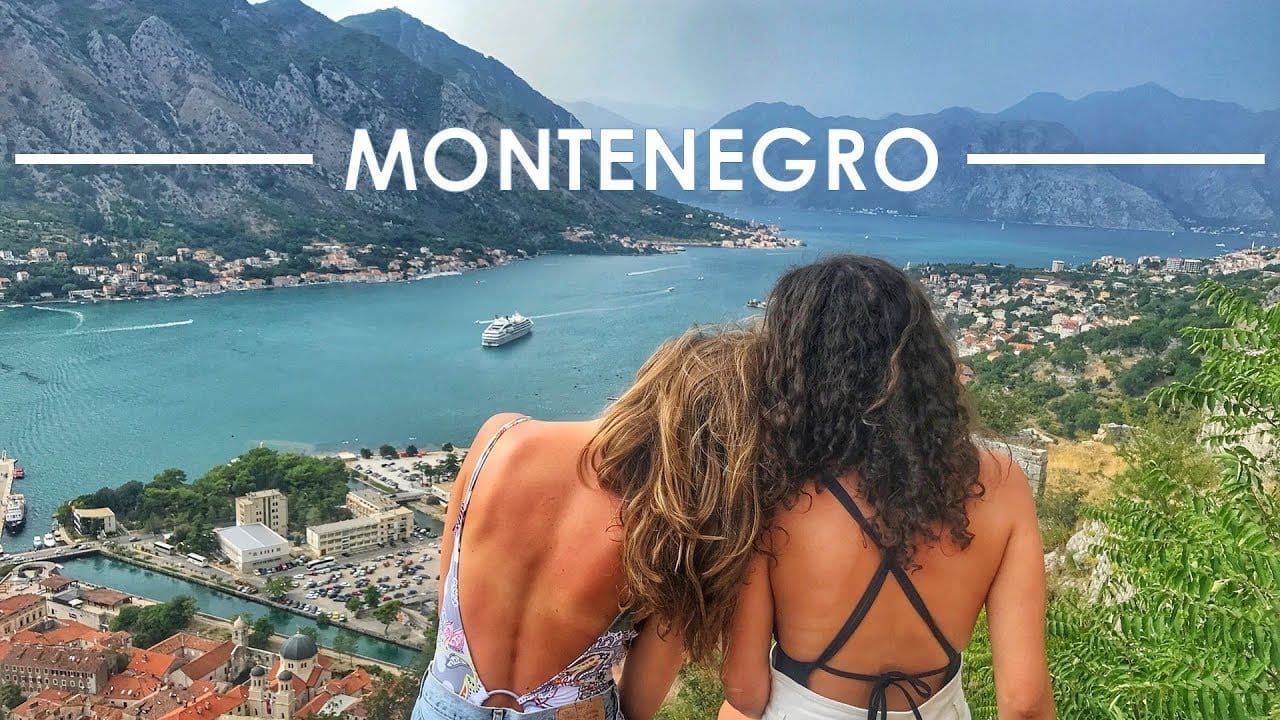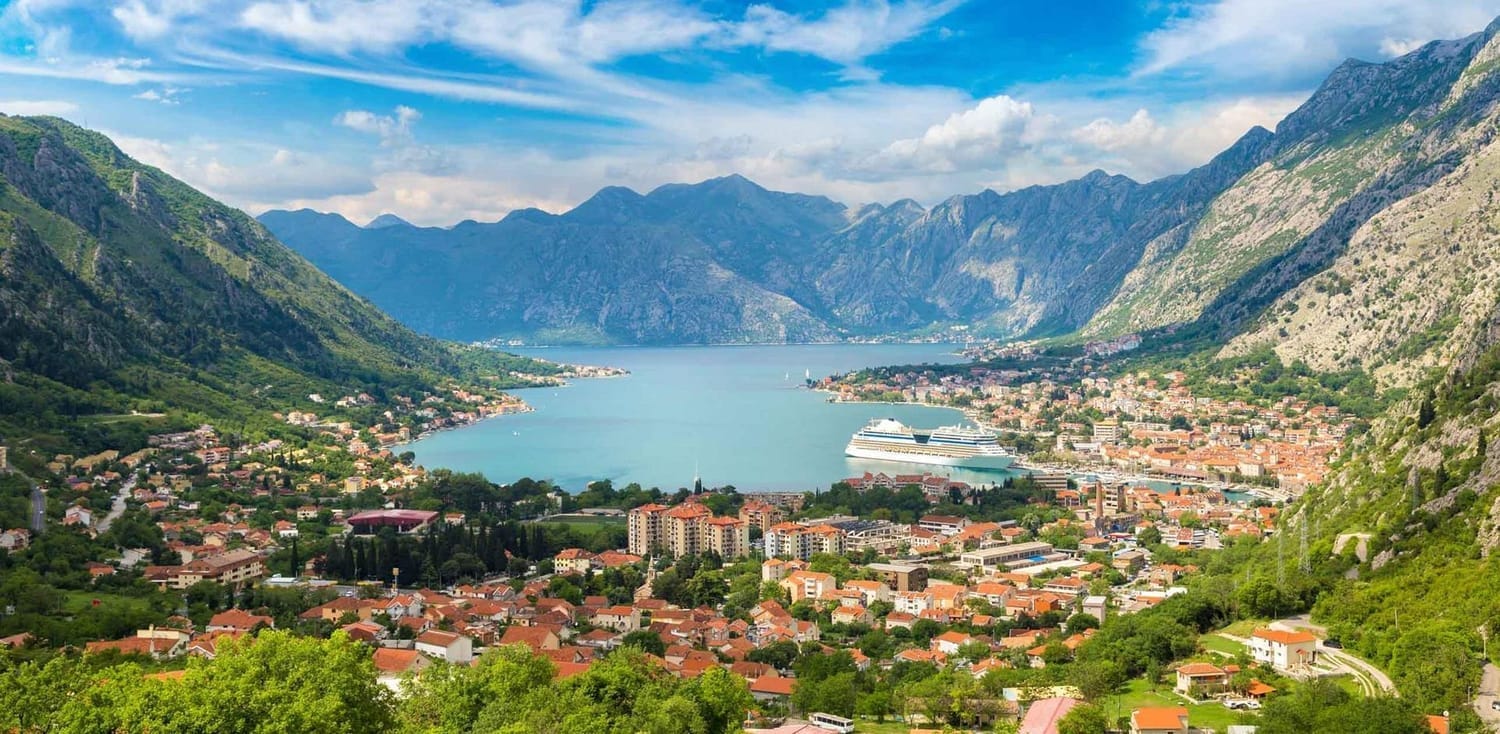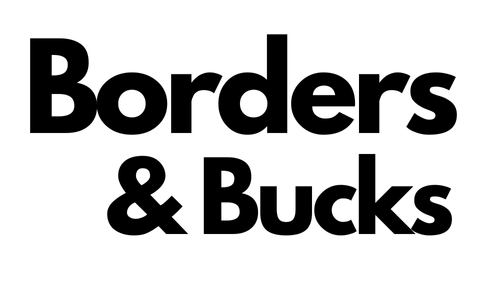Montenegro: The Adriatic's Tax-Friendly EU Candidate with Mediterranean Living
How this Balkan nation combines 9% tax rates, easy residency, stunning coastline, and a fast track to potential EU membership
While digital nomads flock to Georgia and Portugal grabs headlines with tax incentives, Montenegro quietly offers something unique: competitive 9-15% tax rates, straightforward residency through property ownership or business formation, stunning Adriatic coastline, and active EU candidate status—all in a country where €1,000-€1,500 monthly buys a comfortable Mediterranean lifestyle.
This Balkan nation has positioned itself as Europe's accessible alternative—lower costs than Western Europe, better infrastructure than most developing countries, and a clear pathway toward EU membership that could make early adopters exceptionally well-positioned.
This guide covers Montenegro's tax system, residency pathways, and why it deserves consideration as a European Plan B for those seeking Mediterranean living without Western European price tags.
The Tax Proposition: Competitive but Not Ultra-Low
Progressive Tax Structure (2025)
Unlike Georgia's territorial system or Portugal's special regimes, Montenegro operates a relatively straightforward progressive tax system with competitive rates by European standards.
Personal Income Tax - Employment:
First €700 monthly (gross): Tax-exempt
€701-€1,000 monthly: 9% on amount exceeding €700
Above €1,000 monthly: 15%
Personal Income Tax - Self-Employment/Entrepreneurial Income:
First €8,400 annually: Tax-exempt
€8,401-€12,000 annually: 9%
Above €12,000 annually: 15%
Other Income Categories: Most other personal income categories (dividends, interest, rental income, capital gains) are taxed at a proportional 15% rate.
The Local Surtax: An Important Addition
Municipalities charge additional income tax (surtax) on top of the personal income tax: 15% in Podgorica and Cetinje, 13% in all other regions. The surtax base is the amount of general tax assessed.
What this means in practice: If you pay €1,000 in income tax and live in Podgorica, you'll pay an additional €150 surtax (€1,000 × 15%), making your total tax €1,150.
Corporate Tax: Progressive and Competitive
Corporate income tax is progressive and ranges from 9-15%:
Annual profit up to €100,000: 9%
€100,001 to €1,500,000: €9,000 + 12% on profit above €100,000
Above €1,500,001: €177,000 + 15% on profit above €1,500,000
These are marginal rates, meaning each bracket applies only to income within that range—not the entire amount.
Tax Residency Rules
An individual becomes a tax resident of Montenegro if they:
Spend more than 183 days in the country in a tax year, or
Have a domicile in Montenegro, or
Have the center of personal and economic activities in Montenegro
Critical distinction: Residents are taxed on worldwide income regardless of source, while non-residents are taxed only on Montenegro-sourced income.
Unlike Georgia's territorial system, Montenegro taxes global income for residents—making it more similar to most European countries.
VAT and Other Taxes
VAT rates:
Standard rate: 21%
Reduced rate: 7% (bread, milk, books, medicines, public transport, hotel accommodation, prepared food/beverages)
Zero rate: 0% (exports, certain supplies)
Other taxes:
Property tax: Annual property tax ranges from 0.25% to 1% of market value
Transfer tax: 3-6% charged to the buyer on property purchases
Capital gains: Generally taxed at 15%, though real estate held 10+ years may be exempt
Double Taxation Treaties
Montenegro has signed double taxation treaties with over 40 countries, including major economies, providing relief for those with income sources in multiple countries.

Residency Options: Property and Business Pathways
Montenegro offers relatively accessible residency, with two primary pathways popular among foreigners.
Option 1: Residency by Property Ownership
Most popular route for expats and retirees
Foreign citizens can obtain temporary residence by owning developed real estate in Montenegro. Property ownership is one of the primary qualifications for temporary residence permits.
Requirements:
Purchase property in Montenegro
Property must be "developed" (not just land)
No specific minimum value required for basic temporary residence
Initial permit typically granted for one year
Renewable annually
Investment Residency (Higher Tier): For those seeking longer-term options, Montenegro's Residency by Investment program requires a minimum €250,000 real estate investment, with approval within 60-90 days.
Why this route is popular:
Straightforward and transparent
Property can be rented out for income
Montenegro is an EU candidate—property values may appreciate significantly upon EU membership
Can be sold later if you decide to leave
Option 2: Residency by Business Formation/Employment
Best for: Entrepreneurs, digital nomads, business owners
Temporary residence can be obtained by starting a company in Montenegro and hiring yourself as an executive director, satisfying employment requirements for residency.
Requirements: Montenegro company formation is straightforward, with required share capital of just €300.
Process:
Register Montenegrin company (LLC or other structure)
Appoint yourself as executive director
Apply for temporary residence based on employment
Minimum monthly net salary: Approximately €450 as of 2025
Duration: Temporary residence permits generally last one year or as long as you meet the underlying condition (employment or property ownership). They can be renewed for subsequent one-year terms.
Option 3: StartUp Visa Program
The StartUp Visa scheme is one of Montenegro's newest immigration programs, comparable to residency by investment but with lower investment requirements.
Details on specific requirements and investment amounts vary—consult with Montenegrin immigration specialists for current criteria.
Visa-Free Entry
Citizens of many countries including Australia, Canada, EU, UK, and US can enter Montenegro without a visa and stay up to 90 days with just a passport. EU citizens can enter with only a government ID card and stay up to 30 days.
Important: The 90-day tourist period does not reset until 180 days have passed since it started. You cannot do indefinite "visa runs."
Path to Permanent Residency and Citizenship
Permanent Residence: If you have legally lived in Montenegro for five consecutive years on a temporary residence permit with clean criminal record and meet certain criteria (such as property ownership), you're eligible for permanent residency.
Permanent residence permits last five years, can be renewed, and grant all privileges of Montenegrin citizenship except voting and carrying a Montenegrin passport.
Citizenship: Main requirements for citizenship through naturalization:
Live in Montenegro on long-term residence permit for 5 years, or
Live in Montenegro on permanent residence permit for 10 years, or
Be married to a Montenegrin citizen for at least 3 years with cohabitation in Montenegro
Montenegro does not accept dual citizenship—applicants must renounce other citizenships.
Montenegrin Passport Benefits: Visa-free travel to 120+ countries, expedited visa procedures in 32 countries via eVisas, and visa-on-arrival access to 33 countries.
EU Membership Note: Montenegro is actively pursuing EU membership, with most national laws already adhering to EU directives to ease the transition once the country joins the Union.

Cost of Living: Affordable Mediterranean Lifestyle
Monthly Budget Breakdowns (2025)
For a single person, average monthly expenses in 2025 range from €700-€900, while a family of four might expect to spend €2,000-€2,800 monthly, excluding rent.
Budget Lifestyle (Single Person):
Rent (1-bedroom, non-central): €300-450
Groceries: €200-300
Utilities: €80-170
Transportation: €50-80
Entertainment/miscellaneous: €150-200
Total: €780-€1,200/month
Comfortable Lifestyle (Single Person):
Rent (1-bedroom, city center): €400-600 (coastal areas)
Groceries: €250-350
Utilities: €100-170
Transportation: €80-120
Dining out/entertainment: €300-400
Total: €1,130-€1,640/month
Specific Costs
Housing: In premium coastal locations like Budva or Tivat, one-bedroom apartments rent for €400-600 monthly, while similar accommodations in Podgorica range from €300-450. Inland cities offer more affordable options at €200-350 monthly.
Three-bedroom apartments in Podgorica city center cost approximately €1,100 monthly.
Important note: Seasonal variations can be significant, with coastal prices often doubling during summer months.
Food & Dining: A meal at a local restaurant costs €7-12, while dinner at an upscale restaurant runs €20-35 per person. Monthly grocery shopping at supermarkets typically costs €200-300 for one person, though shopping at local markets can reduce costs significantly.
Utilities: Basic utilities (electricity, water, heating, cooling, garbage) expected between €80-€170 monthly for an apartment, considerably higher for a house.
Transportation: Inter-city bus fares vary by distance, but a trip from Podgorica to Budva costs around €5-7.
Comparison to Other Locations
Podgorica is 40% cheaper than Columbus, Ohio; 30% cheaper than Lisbon; 34% cheaper than Madrid.
Montenegro sits in an attractive middle ground—significantly cheaper than Western Europe, but with better infrastructure and proximity to major European cities than most ultra-budget destinations.
The Montenegro Value Proposition
Major Advantages
✅ Competitive 9-15% tax rates (lower than most EU countries)
✅ Simple residency through property or business (€300 company formation, or property purchase)
✅ EU candidate status with active accession process
✅ Stunning Adriatic coastline and natural beauty
✅ Affordable Mediterranean living (€1,000-€1,500/month comfortable)
✅ Uses Euro despite not being EU member (no currency risk)
✅ 40+ double taxation treaties
✅ Permanent residency after 5 years
✅ Visa-free entry for 90 days from 95+ countries
Important Considerations
⚠️ Worldwide taxation for residents (not territorial like Georgia)
⚠️ Surtax adds 13-15% on top of income tax (often overlooked in marketing)
⚠️ No dual citizenship allowed (must renounce other passports for citizenship)
⚠️ 10-year path to citizenship via permanent residence route
⚠️ Limited passport power compared to EU (120 vs 180+ countries)
⚠️ Seasonal cost variations (coastal areas double in summer)
⚠️ Developing infrastructure in some areas
⚠️ EU membership uncertain (timeline keeps extending)
⚠️ Small economy with limited job market
Who Montenegro Works Best For
Perfect for:
Retirees with foreign pensions seeking Mediterranean lifestyle
Property investors betting on EU accession appreciation
Entrepreneurs earning €50K-€150K wanting lower European taxes
Digital nomads preferring Adriatic coast over Georgia/Thailand
Those seeking affordable European base with residency pathway
People comfortable with developing country aspects
Investors seeking €250K+ residency-by-investment in Europe
Not ideal for:
Those seeking territorial taxation (go to Georgia instead)
People requiring dual citizenship (prohibited)
High earners seeking ultra-low taxes (15% + 13-15% surtax = ~28-30% effective)
Those needing immediate EU membership benefits
Families requiring extensive international schooling
Those uncomfortable with Balkan bureaucracy
Montenegro vs. Alternatives
vs. Portugal:
Montenegro: Lower property prices, lower taxes, but no EU membership yet
Portugal: EU member, stronger passport, but higher costs and NHR closed
vs. Georgia:
Montenegro: Mediterranean location, EU candidate, but worldwide taxation
Georgia: Territorial taxation, ultra-low costs, but more distant/developing
vs. Cyprus:
Montenegro: Lower costs, easier entry, but not EU member
Cyprus: EU member with non-dom regime, but higher investment requirements
The Bottom Line
Montenegro offers a middle path—not the absolute lowest taxes (that's Georgia), not the most prestigious passport (that's EU countries), not the cheapest living (that's Southeast Asia)—but a balanced combination that many find attractive.
For €1,200/month, you can live comfortably on the Adriatic coast in a country that uses the Euro, has 40+ tax treaties, charges 9-15% income tax (plus local surtax), and is actively pursuing EU membership.
The property route provides a tangible asset in an appreciating market (if EU membership happens). The business route requires just €300 in capital and opens residency pathways. Both lead to permanent residence in 5 years.
Montenegro isn't trying to be a zero-tax haven—it's positioning itself as an accessible European alternative with competitive rates, straightforward processes, Mediterranean lifestyle, and potential EU upside.
For retirees with €2,500-€3,500 monthly budgets, property investors with €250K+, or entrepreneurs earning €50K-€150K who want a European base without Western European costs, Montenegro deserves serious consideration.
The question isn't whether Montenegro offers the absolute best tax rates or passport—it's whether the combination of reasonable taxes, accessible residency, affordable Mediterranean living, and EU potential creates the right fit for your situation.
Want to compare Montenegro against Portugal, Georgia, Cyprus, and other European options for YOUR specific income sources and goals? Our European Lifestyle Strategy service analyzes which combination of tax optimization, residency pathway, and lifestyle factors works best for your circumstances—with real numbers, vetted professionals, and actionable next steps. Learn more →
Latest News
Who We are?
We give Strategic guidance for globally minded individuals ready to optimize taxes, gain mobility, and design a borderless life.
Created with ©systeme.io



